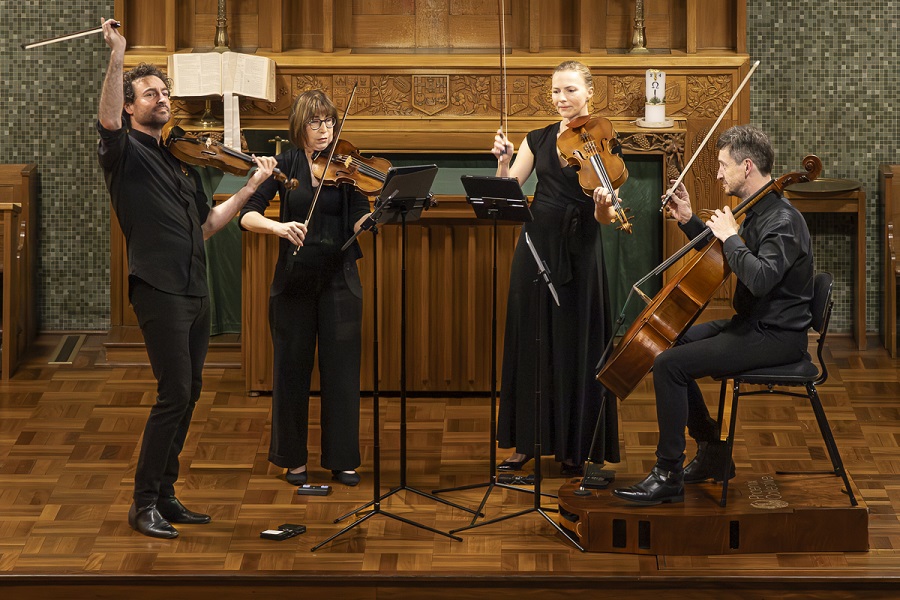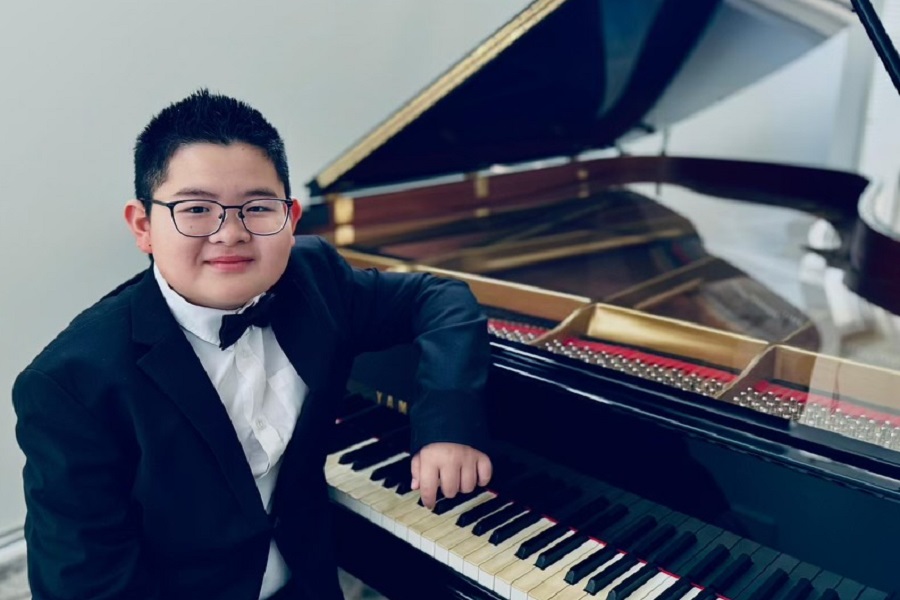
Music / The Americans: Church-Stage-Screen, SCUNA. At Larry Sitsky Recital Room, November 15. Reviewed by IAN McLEAN.
The Australian National University Choral Society (SCUNA) was founded in 1963 and has traditionally performed the masterpieces of the choral repertoire.
In recent years the choir has performed Mozart’s Grand Mass in C minor, Faure’s Requiem, Vivaldi’s Gloria and Bach’s Mass in B Minor but this concert was a lighter exploration of music from America broadly divided into three categories – church, stage and screen or musical theatre.
Renowned Canberra pianist and musicologist Dr Anthony Smith is the current SCUNA repetiteur (in addition to performing the same role for the Canberra Choral Society and the Llewellyn Choir).
He opened the concert with a sparkling interpretation of Gershwin’s I Got Rhythm where he displayed not only his technical mastery of the many facets of rhythm but also explored increasingly complex syncopated rhythmic patterns.
Later in the program he performed another solo piano work, Metamorphosis 111, an example of the relentless pulsating rhythms employed by composer Philip Glass.
The choir itself began with a work by Russian, later American, composer Dimitri Tiomkin who wrote many scores for Western movies including High Noon and Gunfight at the OK Corral.
The hymn-like The Green Leaves of Summer is from the film The Alamo and depicts the night before the famous battle as men reflect on their lost youth.
Appropriately, the strong bass voices were a predominant feature along with good choral balance and neat phrasing. An arrangement of Amazing Grace set the original words to the tune New Britain followed. There were moments of intonation weakness particularly in the upper voices, but it was most interesting to hear a version of the famous African American spiritual in other than its well known settings.
Two more spiritual folk songs, At the River and Let Me Fly, both with their yearnings for freedom and hope for a better life, completed the gospel or church music segment of the concert.
The best known choral piece from the pen of Samuel Barber (of Adagio for Strings fame) is Sure on this Shining Night, which features long melodic lines and interplay between voices and piano. Again, the basses were particularly solid but hesitation was evident amongst the other parts. A pleasing feature was the precision and clarity of phrase endings.
Not as tightly controlled was the demanding This Marriage by Eric Whitacre. It sets to music the words of a 13th century Persian poet, is technically tricky and, stylistically, a vast contrast to the rollicking themes from his well known themes for Pirates of the Caribbean.
From those pieces for stage performance it was on to the final in the trilogy of themes – music from the screen or musical theatre. Sondheim’s The Ballad of Sweeny Todd started the segment. Diction was clear and clean which was important as the story of Todd and his murderous exploits unfolded. The interpretation from the choir just lacked a little of the sinister nature of the story, which would have added to the tension as details of the horrifying tale were revealed.
A demanding arrangement of Bali Hai from South Pacific was not sung with overwhelming confidence with some inaccurate pitching and insecurity in vocal entries although the tutti sections were strong in tonal quality, projection and balance.
A medley from West Side Story returned the choir to more comfortable territory with a rousing offering of the best known tunes from this musical theatre classic. Soprano Lauren Ashman and tenor Kieran Connor sang the lovely One Hand One Heart with passion and depth of feeling while bass Lachlan Rankin led the choir powerfully in a moving rendition of Somewhere.
Summertime from Porgy and Bess was a fittingly programmed piece to bring the concert to a satisfying end, but an additional bonus was to hear the beautiful Peace I Leave With You by Amy Beach, the first successful female composer of large-scale serious music in the US. Sadly, times being as they were in the late 1800s/early 1900s, her performance career (she was a brilliant pianist as well as composer) was severely curtailed simply because of her gender.
Conductor Veronica Thwaites-Brown was clear, decisive and articulate in her musical direction and wonderfully engaging and informative in her dual role as MC of the concert.
Some inexperience in this form of choral performance was evident amongst the choir members, but a pleasing hour of enjoyable entertainment was presented in a joyful, happy and embracing manner.
Who can be trusted?
In a world of spin and confusion, there’s never been a more important time to support independent journalism in Canberra.
If you trust our work online and want to enforce the power of independent voices, I invite you to make a small contribution.
Every dollar of support is invested back into our journalism to help keep citynews.com.au strong and free.
Thank you,
Ian Meikle, editor




Leave a Reply